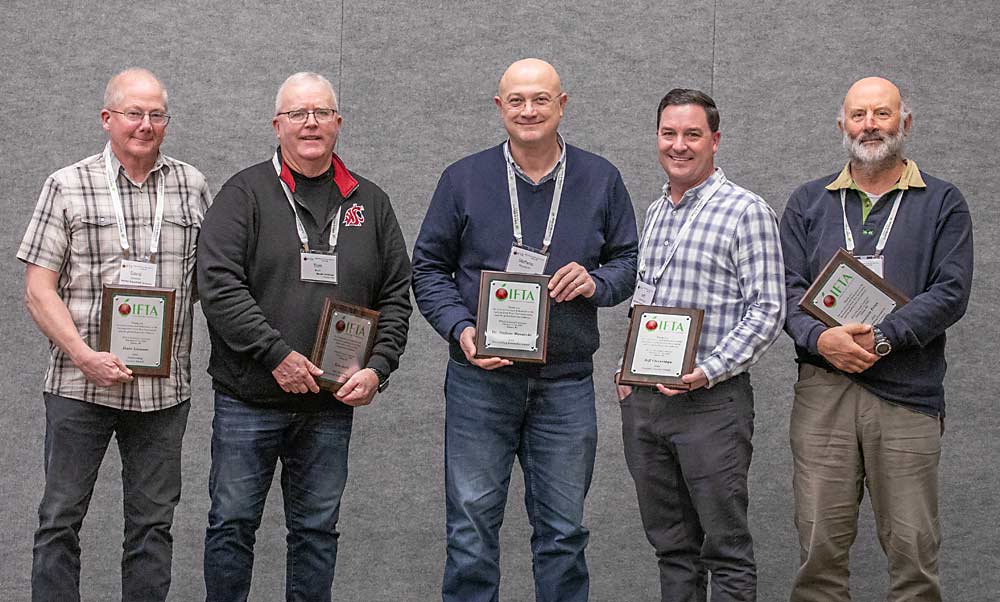IFTA honors leaders amid research updates
[ad_1]

On the final day of the International Fruit Tree Association’s annual meeting in Yakima, Washington, Feb. 14, the group took a break from orchard innovation and technology talks to honor members for their significant contributions to the industry.
Tory Schmidt of the Washington Tree Fruit Research Commission presented the IFTA Lifetime Achievement Award to his longtime colleague, Tom Auvil.
“Tom is a man whose lifelong dedication has significantly influenced the tree fruit industry,” Schmidt said. Auvil grew up in the Auvil Fruit Co. orchards in Central Washington, working with his father and uncle, then bought his own orchards after college. His work with the research commission “evaluating sprayers, running irrigation trials, testing rootstocks, and many other projects” have made a “lasting impact” on the industry, Schmidt said.
Auvil joined IFTA in 1985 and embraced the opportunity to travel and learn from horticulturists around the world.
“I always treasured the opportunity to walk down the hall and ask Tom a question. If he didn’t know the answer, he’d give me his opinion, too,” Schmidt said, adding that Auvil is known for his passionate perspective on many issues, including scion rooting and sprayer droplet size.
Auvil thanked the “IFTA family” for the honor and for “putting up with some of my talking points” over the years.
Other honorees included:
—Mauricio Frias for the 2024 Outstanding Extension Educator Award.
—Stefano Musacchi for the 2024 Outstanding Researcher Award.
—Dave Gleason for the 2024 Outstanding Grower Award.
—Jeff Cleveringa for the 2024 Industry Service Award.
Also during Wednesday’s conference sessions, Musacchi, endowed chair of tree fruit physiology and management at Washington State University, shared insights from recent apple rootstock trials, and Cleveringa, chair of the Washington Tree Fruit Research Commission technology committee, shared an update on robotic harvest trials. Both processes will take more time than growers might hope to make progress.
“You need five to 10 years to evaluate rootstocks in the field,” Musacchi said. “You can pay a high bill if you short this time.”
Breeders, nurseries, researchers and growers will need to collaborate and share knowledge to help the industry make the best rootstock/scion/site matches with the new rootstock options being released, he said.
Cleveringa shared photos of a Kanzi block where the advanced.farm robotic harvester conducted trials in 2023. He calls it a 2.5D canopy.
“It’s not quite 2D, but we are working to get there and trying to keep our yield high,” he said. Running a defoliator through the block before the harvest robot helped, he said.
—by Kate Prengaman

















